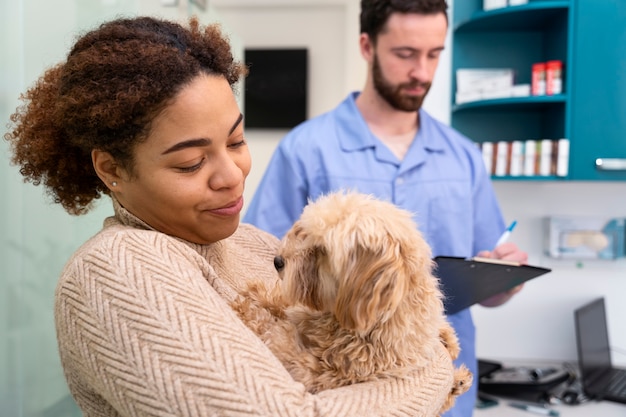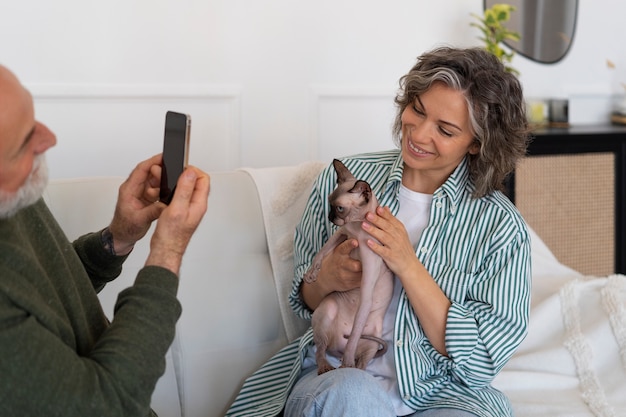Summer Pet Safety: How to Prevent Dehydration in Dogs and Cats


Dehydration in Pets During the Summer Heat: What You Need to Know
Summer is a fun time for outdoor play and sunshine—but for pets, rising temperatures can also mean increased risk of dehydration. Dogs and cats are just as susceptible to heat-related health problems as humans, and dehydration is one of the most serious and common issues veterinarians see during hot weather.
At PetVet Animal Hospital, we want pet parents to feel empowered to protect their furry family members. Understanding the signs, causes, and prevention of dehydration in pets can help you take action before it becomes an emergency.
What Is Dehydration in Pets?
Dehydration occurs when a pet loses more fluids than they take in, disrupting normal bodily functions. Water is essential for maintaining body temperature, joint lubrication, digestion, and circulation. When pets become dehydrated, their organs and systems can suffer, sometimes quickly.
Common Causes of Dehydration in Summer
- Heat Exposure: Long periods in the sun or hot environments, like a parked car or backyard with no shade, can lead to rapid fluid loss.
- Increased Activity: Running, walking, or playing outdoors in high heat increases water needs.
- Illness or Vomiting/Diarrhea: Conditions that cause fluid loss can worsen dehydration, especially in hot weather.
- Limited Access to Water: Pets should have constant access to clean, fresh water indoors and outdoors.
Signs Your Pet Might Be Dehydrated
Knowing the signs of dehydration can help you intervene early. Symptoms may include:
- Dry or sticky gums
- Sunken eyes
- Lethargy or weakness
- Loss of skin elasticity (a “skin tent” that doesn’t bounce back when gently lifted)
- Excessive panting or drooling
- Reduced appetite
- Dark yellow or very little urine
If your pet exhibits any of these signs, especially during hot weather, it’s time to take action—and possibly seek veterinary care.
How to Prevent Dehydration in Dogs and Cats
Fortunately, dehydration is largely preventable with proactive care. Here are some simple but effective tips:
1. Provide Constant Access to Water
Always keep a clean bowl of fresh, cool water available—both indoors and outdoors. Bring water with you on walks or trips.
2. Offer Ice Cubes or Pet-Friendly Ice Treats
Many pets enjoy ice cubes or frozen treats made from low-sodium broth or blended fruits like watermelon (no seeds!). These not only cool them down but also help increase fluid intake.
3. Limit Outdoor Time During Peak Heat
Walk pets early in the morning or later in the evening when temperatures are cooler. Avoid midday sun, especially on humid days.
4. Use Shade and Cooling Products
Provide shaded areas outdoors and consider using cooling mats, fans, or wet towels to help your pet stay comfortable.
5. Monitor for Signs of Heat Stress
Keep an eye out for early signs of overheating and dehydration, especially in brachycephalic breeds (like Bulldogs or Persians), elderly pets, and young puppies or kittens.
When to Call the Vet
If your pet shows signs of moderate to severe dehydration—especially if accompanied by vomiting, diarrhea, or collapse—it’s critical to seek veterinary care immediately. Dehydration can progress rapidly and may require IV fluids and monitoring.
At PetVet Animal Hospital, our team is trained to handle heat-related conditions with compassion and urgency. Whether it’s a quick hydration assessment or a more serious case, we’re here to support your pet’s health year-round.
Don’t let the summer heat put your pet at risk. Visit us at 14065 Mundy Dr,Fishers, IN 46038 or call (317) 792-8919 to schedule a wellness check, or contact our team if you notice signs of dehydration. At PetVet Animal Hospital, we’re here to keep your pet cool, healthy, and happy all summer long.



















